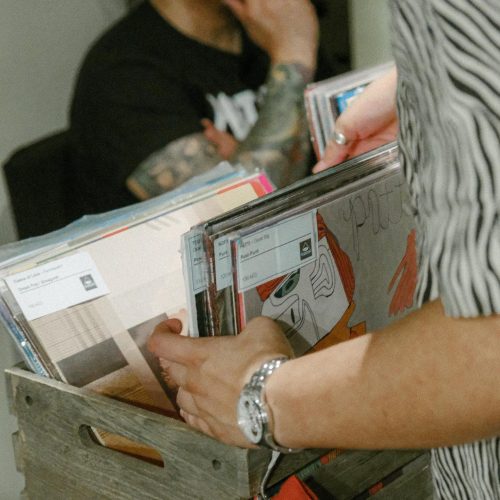In this day and age, most aspire to a ‘Virgil Abloh’ approach to work. The ideal career path is no longer linear, and it’s not one-off either. Being a multi-hyphenate might have once been reserved for singer-songwriters, but today (especially for those of us in creative industries), it’s common practice.
Not only that, but traditional jobs are rejected more and more, and the region is no exception. Despite our parent’s dreams, of their children becoming lawyer and doctors, the youth has risen up, giving legitimacy to an industry that once lived in the shadows. Be it an artist, a photographer, a DJ, or a fashion designer, Arabs can be anything. In fact, they can be all of them at once.
But being a working creative in the region doesn’t mean you face no challenges. With a creative industry that’s only recently started to boom, there is plenty of problems people face along the way that you won’t see or hear about on IG. We asked a few local creative what it’s like to work in the creative industries in Dubai.
Sonia, 26
“Dubai is an incredible place for a freelancer because there’s always work here in the creative industry, granted it’s a competitive market, but you get opportunities here that you probably wouldn’t get elsewhere. So, for that I’m grateful. Being asked to reduce my rates is probably the most annoying thing to deal with, because a lot of the time people downplay a creative’s work ethic or like just how much we have to do to get the results we get. Companies, agencies and brands need to start paying freelancers on time. The whole “you’ll receive payment in 60 working days after delivering” thing is discouraging. I even hear stories of freelancers not even getting paid after submitting all their work and the client would just give them a lame excuse for it. Just be professional and pay people on time and pay them their worth, it’s simple.”
Khalid, 23
“I was drawn to the freedom that came with being a freelancer a lot, the thought process of whether or not I should accept a job based on the creative consistency I was trying to have. It’s quite challenging though, as the market can be inconsistent. I underestimated how much I needed to be organized, because you literally become a walking business, invoicing and chasing payments on your own. It keeps me focused though!”
Mohammed, 31
“I’ve experienced the best and the worst of the creative scene here in Dubai, and across the Middle East. I think most people would agree that it’s the best city in the region to work, because there’s a lot of work to be done. But, there are a select few agencies and companies that I just flat out refuse to work for now. They either delay payments, never pay people, or are just terrible to work with. Also, most companies try to undercut us, take advantage of our creativity and our labour, instead of trying to grow a community and help us raise the quality of our work. Getting paid means we can buy better software to use, more equipment, or hire assistants, which would raise the overall quality of the work coming out of the region. But they’re stunting our growth.”
Bilal, 25
“I have experienced frustration from having to accept jobs that I didn’t feel fitted my creative vision, but at the end of the day you’re making a living so there’s limits to your freedom somehow, this part was quite challenging but I have learnt to only share the work that I genuinely loved working on, and not publicising the rest.”
Marwa, 25
“I love being a freelancer but I feel like there needs to be more trust between freelancers and big corporations, especially when it comes to a western company hiring Arab talent to work on regional projects. We know what is appropriate and what lines not to cross, our input should be emphasized more, and we should have a seat at the table. But I would say the biggest issue is definitely payments that tend to be massively delayed, which is why I constantly encourage freelancers to get 50 per cent beforehand.”
Photo by Avi Richards









